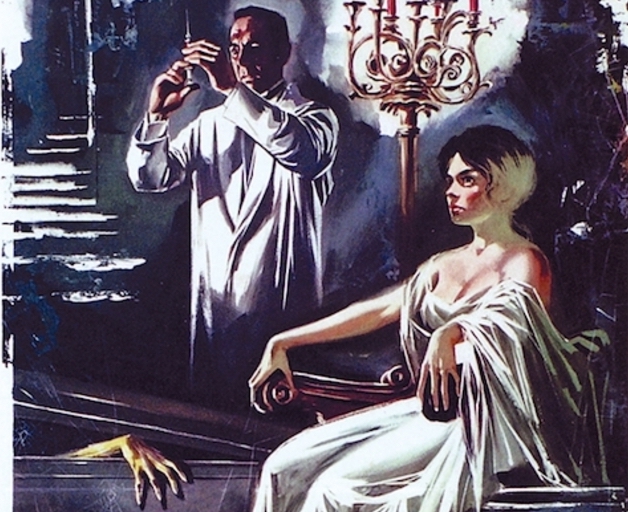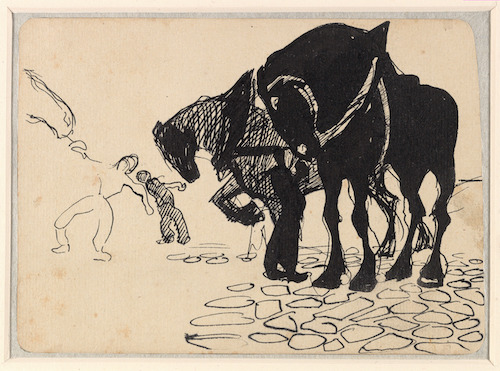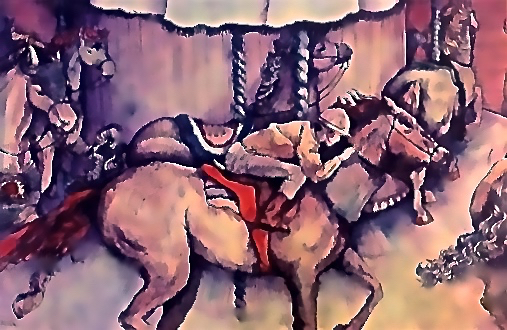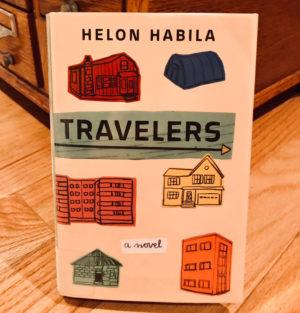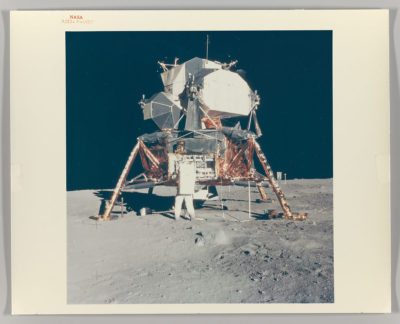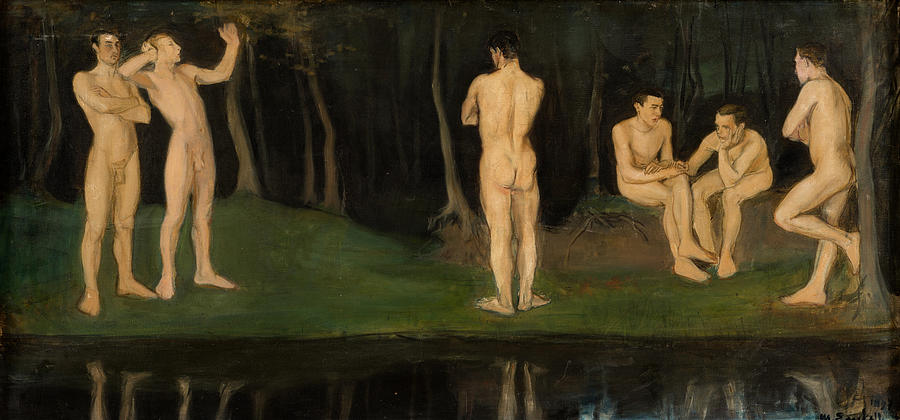-
“Lovingly, Peaches” by Michaela Rae Luckey
My mother named me Posie, but my nickname is Peaches. When we were young, my mom would read me and my older brother bedtime stories every night until we fell asleep.
One night, I asked, “Why do people call me Peaches?”
She put down our book and said, “When God put you in my tummy, I had this craving for white peaches–craving means something you’re really hungry for.”
My brother and I nodded.
“I ate those peaches all the time even though I’d never really liked them before. When you were born,
-
“A Stranger Named Plague” by Stephanie Dickinson
Above: “Three Horses Tended by Men” by Umberto Boccioni
Stone Pavement1981, Houston
&
You _arrive_in the _time of _azaleas _and heat wave. _Hungry_ for the
high _yellow _of _a _Gulf _Coast _scorcher,_ you _eat on _Texas _Street
where oil _drum _cookers, -
“Diana the Thoroughbred” with Artwork by Rebecca Pyle
Above: “The Carousel and the Racehorse”
Pen, ink, and watercolor.They were headed for the track, one of the ones the Queen liked to enter her horses in. Gavin in his college days with friends had once gone to a track, but he had sworn then he would never bother again: it seemed a habit like smoking, sure to leave you wishing you had never begun, or like the habit of continually trying to meet girls, which would backfire, leave you apologizing or making excuses to half of them, not a spot you should want to find yourself in if you valued simplicity.
-
“Travelers by Helon Habila” Reviewed by LaVonne Roberts
What is it like to be a refugee? Around the world, 70.8 million people have been forcibly displaced. It’s hard to fathom the terrible extent of the refugee crisis, but Habila captures the humanity of his characters in a way that newspapers can’t. Travelers comes at a time when Americans are being forced to reckon with what our country is becoming, what values we truly hold dear. Habila’s stories parallel anti-immigrant narratives being espoused in the U.S. and globally today.
Helon Habila started working on Travelers in 2013, when in Berlin on a one-year fellowship.
-
“The Tracks” by Felicity LuHill
Kim stared at her feet and silently counted her steps. One, two, three… 267 steps between lampposts. One hundred and fifty steps between mailboxes. Forty-two steps since the last time she passed a dog—a small, beige terrier, unafraid to yap at sulky teenage girls. She counted to remind herself that she was another step closer to her bedroom—to cool pillows, beef jerky, and documentaries about ships discovered on the bottom of the ocean.
She wondered what she would say to Stella, her mother, when she got home. “How can you forget to pick up your own daughter?” was an effective sentiment Kim frequently used.
-
Excerpt from “Morasses” by André Gide (translated from the French by Tadzio Koelb)
Translator’s introduction: In this chapter the narrator—who claims to be a writer, but never writes—has once again postponed work on his novel, Morasses, this time to attend a salon for men of letters at the home of his good friend Angèle. Gide used the scene as an opportunity to mock the literary world of his day. Readers can look for a caricature of Gide’s correspondent and sometime traveling companion Oscar Wilde, here given the name Valentin Knox.
Morasses
On the days she receives guests,
